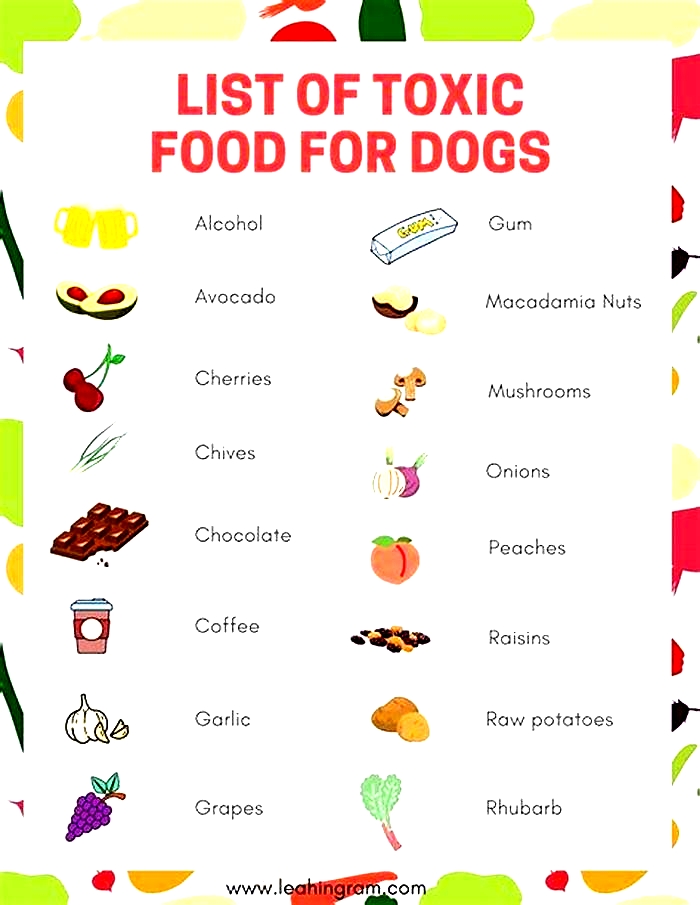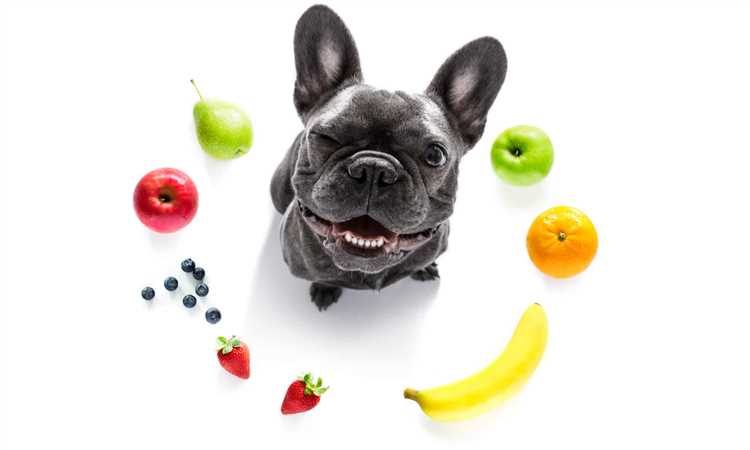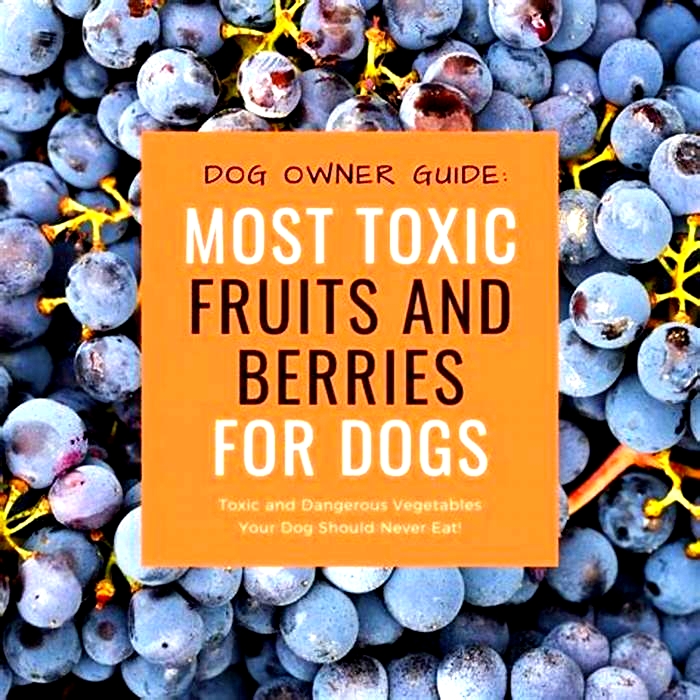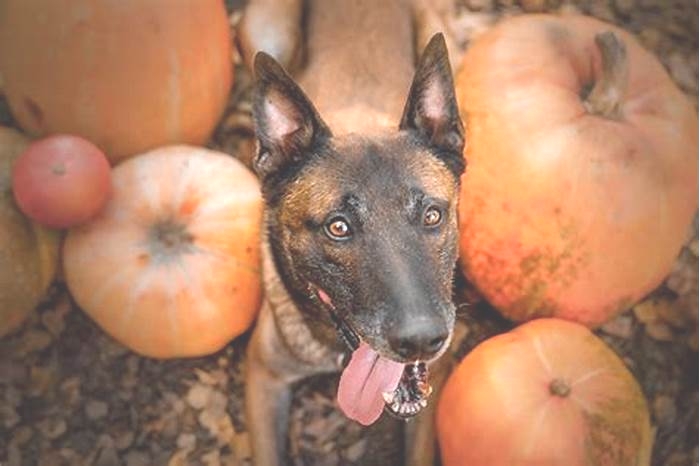Are any fruits toxic to dogs

Which Fruits Are Toxic to Dogs: A Comprehensive Guide

Dogs are notorious for their curiosity and ever-present appetite. As their owners, it is our responsibility to ensure that our beloved furry friends are safe and healthy at all times. While fruits are generally considered a healthy addition to our diet, not all fruits are safe for dogs to consume. In fact, some fruits can be toxic and even potentially fatal to dogs if ingested.
This comprehensive guide aims to provide pet owners with a detailed list of fruits that are toxic to dogs. It is essential to be informed about the potential dangers to prevent any unfortunate incidents. Remember, prevention is always better than cure, and being aware of the fruits that can harm your dog allows you to take the necessary precautions to keep them safe.
Here are some of the fruits that are toxic to dogs:
Grapes and raisins: Grapes and raisins can cause kidney failure in dogs, leading to severe health issues and, in some cases, even death. It is advised to completely avoid giving your dog grapes and raisins, including foods that contain them as an ingredient, such as certain baked goods or trail mixes.
A List of Fruits That Are Harmful to Dogs
While fruits are a great source of vitamins and minerals for humans, not all fruits are safe for dogs to consume. Some fruits can be toxic to dogs and should be avoided at all costs. Its important for dog owners to be aware of which fruits can be harmful to their furry friends. Here is a list of fruits that are known to be harmful to dogs:
- Grapes and raisins: Grapes and raisins can cause severe kidney damage in dogs, leading to kidney failure. Even small amounts of grapes or raisins can be toxic.
- Avocado: Avocado contains a toxic compound called persin, which can cause vomiting, diarrhea, and other digestive issues in dogs.
- Cherries: The seeds, stems, and leaves of cherries contain cyanide, which is extremely toxic to dogs. Consumption of cherries can lead to respiratory distress and even death.
- Citrus fruits: Citrus fruits, such as oranges, lemons, and limes, can cause an upset stomach in dogs. The high acidity can lead to gastrointestinal issues and even vomiting.
- Stone fruits: Stone fruits like peaches, plums, and apricots contain pits that can pose a choking hazard to dogs. The pits also contain cyanide, which is toxic to dogs.
- Tomatoes: While ripe tomatoes are generally safe for dogs, green tomatoes and the leaves and stems of tomato plants contain a toxic substance called solanine. Ingestion of these parts can cause digestive upset and even cardiac issues.
- Coconut: While the flesh of coconut is safe for dogs, the milk and water of coconut can cause gastrointestinal upset and diarrhea due to their high fat content.
- Macadamia nuts: Although not a fruit, macadamia nuts can cause weakness, tremors, and vomiting in dogs. In severe cases, they can also lead to paralysis.
It is important to remember that every dog is different, and some may have sensitivities or allergies to certain fruits. If you suspect that your dog has ingested a harmful fruit or is experiencing any unusual symptoms, it is best to consult with a veterinarian immediately. Prevention is always better than cure when it comes to your furry friends health and well-being.
Grapes and Raisins
Grapes and raisins are highly toxic to dogs and can cause severe health issues. The exact toxin that affects dogs is still unknown, but even a small amount can lead to kidney failure and potentially be fatal.
If a dog ingests grapes or raisins, it is essential to seek veterinary care immediately. The symptoms of grape or raisin toxicity can include vomiting, diarrhea, lethargy, loss of appetite, abdominal pain, and decreased urine production.
Keep in mind that all types of grapes, including red, green, and seedless varieties, can be harmful to dogs. Raisins, whether fresh or dried, are also dangerous. Even small amounts can have a devastating effect on their health.
Its crucial to be cautious and ensure that your dog does not have access to grapes or raisins. This means not leaving them in easily accessible areas and being mindful of foods that may contain these ingredients. Double-check ingredient lists and avoid sharing any foods that might include grapes or raisins, such as some baked goods or trail mixes.
If you suspect your dog has ingested grapes or raisins, contact your veterinarian immediately. Time is of the essence when it comes to treating grape or raisin toxicity, and prompt medical attention can make a significant difference in your dogs outcome.
Remember, prevention is always better than treatment. Keep grapes and raisins out of reach, and educate yourself about other fruits and foods that may be harmful to your furry friend. Your dogs well-being is worth the extra effort.
Avocados
Avocados contain a toxin called persin, which can be harmful to dogs when ingested in large amounts. While the flesh of the avocado is generally fine for dogs to eat, it is the pit, skin, and leaves that contain higher levels of persin and should be avoided.
If a dog ingests a small amount of avocado, it may experience mild symptoms such as vomiting or diarrhea. However, if a dog consumes a large amount of avocado or the pit, it can lead to more severe symptoms such as difficulty breathing, pancreatitis, or even death.
Its important to note that some dogs may be more sensitive to persin than others, and even a small amount of avocado can cause a severe reaction. Therefore, its best to avoid feeding avocados to dogs altogether.
If you suspect that your dog has ingested avocado or is showing any symptoms of avocado toxicity, its important to contact your veterinarian immediately for guidance and treatment.
Cherries
Cherries are a delicious and juicy fruit that many humans enjoy, but when it comes to dogs, they can be toxic. The fruit itself is not poisonous, but it is the pit and leaves that contain cyanide, which is dangerous for dogs.
If a dog ingests a cherry pit, they can suffer from cyanide poisoning. Symptoms of cyanide poisoning can include difficulty breathing, dilated pupils, red gums, and even death in severe cases. Therefore, it is important to prevent your dog from accessing cherries and their pits.
If you suspect that your dog has eaten cherries or cherry pits, it is important to seek veterinary care immediately. The vet may induce vomiting or perform other treatments to prevent the cyanide from being absorbed by the dogs body.
Remember to always keep cherries out of your dogs reach and never feed them cherries or any other fruits without consulting your vet first. Its better to be safe than sorry when it comes to your furry friends health.
In summary:
- Cherries themselves are not toxic to dogs, but the pits and leaves contain cyanide.
- Cyanide poisoning can cause serious symptoms and even death in dogs.
- If you suspect your dog has ingested cherries or cherry pits, seek veterinary care immediately.
- Always consult your vet before giving your dog any fruits.
Remember, a healthy and happy pup is a cherished companion!
Symptoms of Fruit Poisoning in Dogs
Its important to be aware of the symptoms of fruit poisoning in dogs so that you can take immediate action if your furry friend ingests a toxic fruit. Here are some common symptoms to watch out for:
Gastrointestinal Distress: Dogs may experience vomiting and diarrhea after eating a toxic fruit. The severity of these symptoms can vary depending on the type and amount of fruit consumed.
Abdominal Pain: Dogs may show signs of discomfort or pain in their abdomen, such as whining, restlessness, or sensitivity when touched. If you notice any of these symptoms, its important to consult your veterinarian.
Loss of Appetite: A dog who has ingested a toxic fruit may lose interest in food and refuse to eat. This could be due to the discomfort caused by the poisoning or as a natural protective response.
Weakness or Lethargy: Fruit poisoning can cause dogs to become weak and lethargic. They may have a lack of energy, be unwilling to engage in physical activity, and have difficulty getting up or moving around.
Incoordination: Dogs may exhibit unsteady movements, stumbling, or lack of coordination after ingesting a toxic fruit. This can be a result of the fruit affecting their neurological system.
Tremors or Seizures: In severe cases of fruit poisoning, dogs may experience tremors or seizures. These episodes can be alarming and require immediate veterinary attention.
Changes in Urine or Stool: Toxic fruit ingestion can lead to changes in a dogs urine or stool. This could include discolored urine, blood in the urine or stool, or changes in stool consistency.
Increased Thirst: Dogs may experience increased thirst as a result of fruit poisoning. This can be a sign of dehydration, which can occur due to vomiting or diarrhea.
If you notice any of these symptoms in your dog after they have ingested a potentially toxic fruit, its important to contact your veterinarian immediately. Prompt veterinary care can help minimize the effects of fruit poisoning and ensure the best possible outcome for your furry friend.
Vomiting and Diarrhea
If your dog consumes a toxic fruit, they may experience symptoms such as vomiting and diarrhea. These symptoms are the bodys way of trying to eliminate the harmful substance.
Vomiting is the forceful expulsion of stomach contents through the mouth. It is a common reaction to ingesting something toxic, as the body tries to rid itself of the harmful substance. In some cases, the vomit may contain pieces of the fruit your dog consumed.
| Vomiting | What to do |
|---|---|
| One episode of vomiting | Monitor your dog closely. If the vomiting continues or worsens, contact your veterinarian. |
| Multiple episodes of vomiting | Contact your veterinarian immediately. They may recommend bringing your dog in for an examination. |
Diarrhea is the passage of loose, watery stools. It can be a common symptom of fruit toxicity in dogs. Diarrhea occurs as the body tries to expel the harmful substances from the digestive system.
| Diarrhea | What to do |
|---|---|
| Mild diarrhea | Monitor your dog closely. Make sure they have access to fresh water to prevent dehydration. If the diarrhea persists or worsens, contact your veterinarian. |
| Severe diarrhea | Contact your veterinarian immediately. Severe diarrhea can lead to dehydration and other complications, so it is important to seek veterinary care promptly. |
If your dog is experiencing vomiting and diarrhea after consuming a toxic fruit, it is important to seek veterinary care. While mild cases of vomiting and diarrhea can often be managed at home with supportive care, severe symptoms may require medical intervention. Your veterinarian can provide the best guidance based on your individual dogs situation.
Weakness and Lethargy
Weakness and lethargy are common symptoms of fruit toxicity in dogs. When a dog ingests toxic fruits, it can lead to a decrease in energy levels and overall weakness. The dog may seem tired and sluggish, lacking the usual enthusiasm and vigor.
These symptoms occur because the toxic substances in certain fruits can affect the dogs central nervous system, causing a decrease in physical and mental function. As a result, the dog may struggle to perform normal activities or display signs of disinterest.
If you notice your dog displaying signs of weakness and lethargy after consuming a potentially toxic fruit, it is crucial to seek veterinary care immediately. Delaying treatment could worsen the dogs condition and lead to more severe health complications.
Additionally, keep in mind that weakness and lethargy could be signs of various other health issues, so it is essential to consult with a veterinarian to rule out any underlying conditions.
Remember, prevention is key when it comes to protecting your dog from fruit toxicity. Be mindful of which fruits are safe for dogs to consume and ensure they do not have access to toxic fruits. By doing so, you can help keep your furry friend happy, healthy, and free from potential harm.
Loss of Appetite
Loss of appetite is a common symptom that can occur in dogs who have ingested toxic fruits. When a dog eats a toxic fruit, they may experience nausea, stomach pain, and discomfort, leading to a loss of appetite.
If your dog shows signs of a loss of appetite after eating a potentially toxic fruit, it is important to seek veterinary care immediately.
Loss of appetite can be a serious issue, as it can lead to malnutrition and dehydration if left untreated. It is crucial to monitor your dogs eating habits and behavior closely, especially after they have eaten a fruit that may be toxic.
Some common signs of loss of appetite in dogs include:
- Refusing to eat or only eating small amounts
- Turning away from food
- Lack of interest in treats or favorite foods
- Weight loss or a decrease in body condition
- Excessive licking of the lips or excessive drooling
- Vomiting or diarrhea
If you notice any of these signs, it is important to consult your veterinarian immediately for a proper diagnosis and treatment plan.
In the meantime, you can try to encourage your dog to eat by offering small, bland meals and avoiding giving them any fruit or other potentially toxic foods. However, always consult with your veterinarian before making any changes to your dogs diet.
Remember, prevention is key when it comes to keeping your dog safe from toxic fruits. Be sure to educate yourself about which fruits are toxic to dogs and keep them out of your dogs reach to avoid any potential health issues.
What to Do If Your Dog Eats Toxic Fruits?
If you suspect that your dog has eaten a toxic fruit, it is important to act quickly to ensure their safety and well-being. Here are the steps you should take if your dog consumes a fruit that is known to be toxic:
1. Stay calm and assess the situation.
Firstly, try to remain calm and assess the situation. Look for any obvious signs of distress or illness in your dog. It is important to remember that not all fruits are toxic to dogs, so its possible that your dog may not experience any adverse effects.
2. Identify the fruit.
If you know or suspect that your dog has eaten a toxic fruit, try to identify the specific fruit. This information will be helpful when seeking veterinary assistance, as different fruits can have different levels and types of toxicity.
3. Contact your veterinarian.
Next, contact your veterinarian immediately for guidance. They will be able to provide you with specific instructions based on the fruit ingested and your dogs individual circumstances. In some cases, they may advise inducing vomiting at home, while in other cases, they may recommend bringing your dog in for immediate evaluation and treatment.
4. Do not attempt home remedies without consulting a professional.
While there may be various home remedies or suggestions found online, it is crucial not to attempt any of these without consulting a veterinary professional first. Many home remedies can actually do more harm than good, so it is best to follow the advice of a trained veterinarian.
5. Observe your dog closely.
After contacting your veterinarian and following their instructions, closely monitor your dog for any signs of illness or distress. Look out for symptoms like vomiting, diarrhea, weakness, difficulty breathing, or changes in behavior. If you notice any concerning symptoms, contact your veterinarian again for further guidance.
6. Take preventive measures in the future.
To avoid future incidents, it is important to be aware of the fruits that are toxic to dogs and take preventive measures. Keep all toxic fruits out of your dogs reach and ensure that they are not easily accessible in your home or yard.
Remember, the best way to protect your dog from eating toxic fruits is prevention. Stay informed, maintain a safe environment, and seek immediate veterinary help if you suspect your furry friend has ingested a toxic fruit.
Question-answer:
Can dogs eat grapes?
No, dogs cannot eat grapes. Grapes are toxic to dogs and can cause kidney failure.
Is it safe for dogs to eat avocados?
No, avocados are toxic to dogs. They contain a substance called persin, which can be harmful to dogs if consumed in large quantities.
Are apples safe for dogs?
Yes, apples are safe for dogs to eat, but you should remove the seeds, core, and stem, as these can be choking hazards. Also, avoid giving them too much as it can cause an upset stomach.
Can dogs eat bananas?
Yes, dogs can eat bananas in moderation. Bananas are a good source of vitamins and fiber for dogs, but too much can cause constipation.
Are strawberries safe for dogs?
Yes, strawberries are safe for dogs to eat in moderation. They are low in calories and a good source of vitamins. Make sure to remove the stems and leaves before giving them to your dog.
Which fruits are toxic to dogs?
There are several fruits that can be toxic to dogs, including grapes, raisins, avocados, and citrus fruits.









